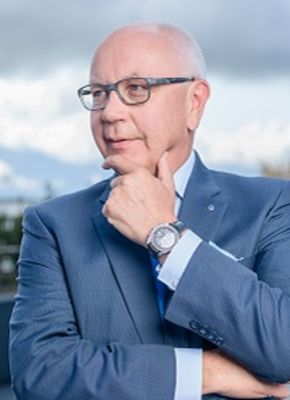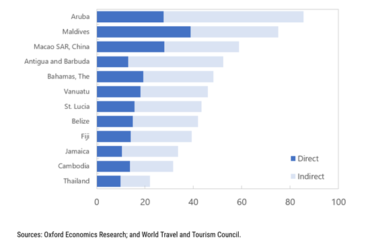Loyal to my Jura origins, I often compare the world of education to the complex mechanism of a Swiss watch. Indeed, precision and technique are necessary components for creating high-quality watches, but they are nothing without the complement of soul, a history and strong values. In my opinion, the same is true in the world of education and even more so in the world of dual education: you have to know how to teach both hard and soft skills. These two sets of skills are inseparable if we want to accompany generations of learners in a caring environment and satisfy their aspirations in a world that keeps changing.
This focus on the importance of soft skills has certainly grown over the last few years and will continue to do so as we approach 2030. In the past year, Covid-19 has played a major role in further accelerating the digital transformation of many industries, thus increasing this shift towards soft skills even more.
So how can graduates best prepare themselves to be successful in this ever-changing market? Surely the secret lies in choosing an education program within a chosen field of study that balances the importance of both hard and soft skills. This thinking is the foundation of the dual education (experiential learning) approach which we, at EHL Group, incorporate in our higher education programs.
Closing the skills gap
Traditionally, people looked to formal education to gain the hard skills (job-related technical knowledge or abilities that can be measured) needed to succeed in a given job or industry. Now, to be successful, soft skills play and equal, if not greater, role in career success.
Soft skills, also called transferrable skills, are those skills that are useful and relevant for a variety of fields and are much harder to measure or quantify. Transferrable skills are the combination of several skills (cultural awareness, networking skills, social skills, communication skills, customer service, etc.) blended with social and emotional intelligence. According to the World Economic Forum’s Future of Jobs Report 2020, the first six skills of emerging soft and hard skills (of their top 15), are transferrable skills: analytical thinking & innovation, active learning & learning strategies, complex problem-solving, critical thinking & analysis and leadership & social influence.
As the importance for soft skills rises, various studies highlight that there continues to be a skills mismatch between graduates and the job market. For example, the European Centre for the Development of Vocational Training stated in their 2018 report, Insights into skill shortages and skill mismatch that four in ten EU employers had difficulty finding people with the right skills. Does this suggest that universities are simply not offering students the opportunity to incorporate soft skills learning while they pursue their chosen fields of study?
If students are meant to succeed in the current and future job market, then education institutions need to close the skills gap by adapting their curriculums and creating a thoughtful learning environment which enable students to develop their soft skills. A balance between teaching hard and soft skills is imperative if students are to be truly supported. The goal is to ensure graduates are employable coming out of their studies, and equally have the right skill set to have a long-term successful career in whatever career path they choose.
Incorporating soft skills across all education programs
Is it possible to integrate soft skills into any education program? At EHL, we believe so. Soft skills are part of our DNA and an integral part of our curriculum through our dual education programs that focus on an experiential education model where cultural sensitivity, leadership skills and an appreciation for lifelong learning are just some of the soft skills instilled in our students.
Hospitality is all about people. It’s about providing a guest or a customer with excellent service and with a unique and memorable experience. In addition to the hard skills (e.g. project management, marketing, accounting, finance, etc.) needed in the hospitality industry, customer satisfaction requires highly demanded soft skills and emotional intelligence.
To help our students excel as professionals, we offer them an appropriate and caring learning environment to incite the development of soft skills. This includes an excellent student to professor ratio; mindfulness workshops; a plethora of group projects; spiritual and psychological counseling, to name just a few of the ways soft skill learning is incorporated into everyday life for our students. EHL offers a holistic approach to education, not only focusing on classroom learning, but also on an enhanced experience on campus and through extracurricular activities. We aim to be a “school of life”, built around the students’ experience, which advocates benevolence on a daily basis, so that everyone can evolve in a caring environment.
Dual education for long-term career success
Today, hospitality is a generic term, which includes all sectors where customer satisfaction is key. Hence, those soft skills acquired in the hospitality management learning journey are transferable to many different industries. While many EHL graduates still pursue careers in traditional hospitality sectors, about half of them work in other industries (e.g. finance, real estate, luxury, consulting, among others) delivering service excellence to customers. Excellence in the future will be defined by the quality of the human interactions which explains why other industries are actively recruiting hospitality graduates.
So, moving forward, a better understanding of the role soft skills play in ensuring long-term career success for graduates needs to be reflected in the approach taken by education institutions in building a caring learning environment and their academic programs. A dual education program prepares students to enter an ever-changing market and support them in their long-term career success whether they choose to stay in one industry or to move around. Ultimately, it will equip them with the skills needed to fulfill their dreams, whatever they may be.
By Michel Rochat, CEO, EHL Group
SOURCE: https://hospitalityinsights.ehl.edu/hard-soft-skills-career-success


